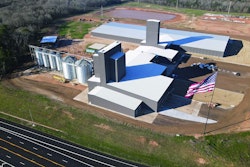
As imports remain constrained, quite a few new local pet food manufacturers have emerged in Pakistan during the last few years. In many cases, the quality of locally manufactured products remains questionable, and the state of demand in the market leaves a lot to be desired.
Pet food imports to Pakistan have fallen victim to government policy aimed at improving the state's payment balance, pursued over the last several years.
In 2024, Pakistan's Federal Board of Revenue (FBR), a state financial regulator, jacked up the import duty on pet food from 25% to 50% as part of a broader initiative under which 657 luxury and non-essential retail items were subjected to higher import taxes.
Pet food imports have long appeared in the crosshairs of Pakistani financial authorities. In 2023, import duty had already been raised from 17% to 25%.
In June 2022, pet food imports were temporarily banned, along with 800 other items considered luxury goods, although the restrictions faced backlash from the local business community and were swiftly removed.
Despite the high levy, imported pet food brands, such as Royal Canin, are still available on the market, although every duty hike makes them more expensive, said Shahjahan Mazhar, founder of Lucious, a local brand of premium dog food.
The impact of the duties, however, is seen with the naked eye. According to Mazhar, the market has witnessed growth in homegrown brands as a cheaper alternative, as well as an increase in the number of pet owners who have shifted to homemade meals.
An emerging industry
As import restrictions made foreign pet food unaffordable for a large portion of the Pakistani population, many former importers converted their businesses to manufacture pet food.
For example, Pet King Global inaugurated a pet food factory near Karachi in May 2025, which the company claims is one of the largest and most modern facilities in the country. Pet King Global was established on the basis of Qureshi Enterprises, one of the leading pet food importers and distributors.
"Previously, our market has been totally dependent on imports, and there was a definite need for high-quality pet food which could be available to the masses at affordable prices," said Muhammad Rameez Qureshi, a brand owner.
Pet King Global has heavily invested in modern technologies and prioritized product quality in an effort to offer a decent alternative to foreign brands.
"We have established a modern state-of-the-art pet food manufacturing facility, which is the first one of its kind in Pakistan. This initiative involved getting on board several experts; the initial layout and plant design is incorporated by French consultants, whereas the recipe formulation is from New Zealand," Qureshi said.
All new brands are being established to fill the gap in the market left by the hike in import duties.
"The idea for Licious was born out of my own struggles as a dog parent when I couldn't find affordable, high-quality food for my three golden retrievers," Mazhar said. "Imported options were too expensive and hard to find consistently, whereas local products led to skin and stomach issues. After speaking to other pet owners facing the same challenges, I decided to create a better solution."
Evolving supply
Several local brands have emerged on the scene in the last few years, each with their own unique selling point, a Licious spokesperson added.
"We have brands going the conventional route making traditional dog food, namely in the form of pellets through extrusion. A few brands that make fresh-frozen dog food. A couple that make canned dog food. And a few that are focused on treats and supplementation," Mazhar added.
"As for the quality of local products, I tend to stay away from traditionally made dog food. In my personal opinion, it isn't the highest quality product and does not suit my dogs," Mazhar said, adding that other companies that make fresh or canned dog food seem to have better quality.
"I do not believe most local brands have the ability to compete with international pet food companies as there isn't anything innovative in the production process or ingredients," Mazhar added.
Waning demand
The production boom, however, is not accompanied by similar growth in demand.
Before imports were subject to high duties, the Pakistani pet food market had grown by double digits. Now, sales, on the contrary, tend to shrink, Faisal Dogar, CEO of JBF Industries, a company manufacturing pet food under Pro Can Dog Food and Moggy Cat Food since April 2022, told Petfood Industry. JBF Industries had been involved in pet food imports since 2013 but, like many other players, switched to local production.
"At the moment, we are observing negative growth in the market size," Dogar said. "Although the population of pets is increasing, due to economic situations and crises, people are more inclined to feed their pets leftovers from the dining table, especially dogs. The breeding business is depressed as breeders are unable to find good parents for adoption.
"Local players are coming into the market, but it's not an ideal time," Dogar added, admitting that not every launch of a new pet food factory in Pakistan is a success story. At least two factories have been permanently shut down in the country during their first two years of operation, as they were unable to withstand the competition.
On top of that, all pet food manufacturers in the country experience problems sourcing high-quality raw materials, and this issue is expected to remain pressing for the time being, Dogar admitted.
However, not everyone agrees that the market is on a downward trajectory. Mazhar, for instance, argued that the market continues to show strong momentum, though the double-digit growth of past years is unlikely to be seen. There is still room for growth in the market, the spokesperson added.















